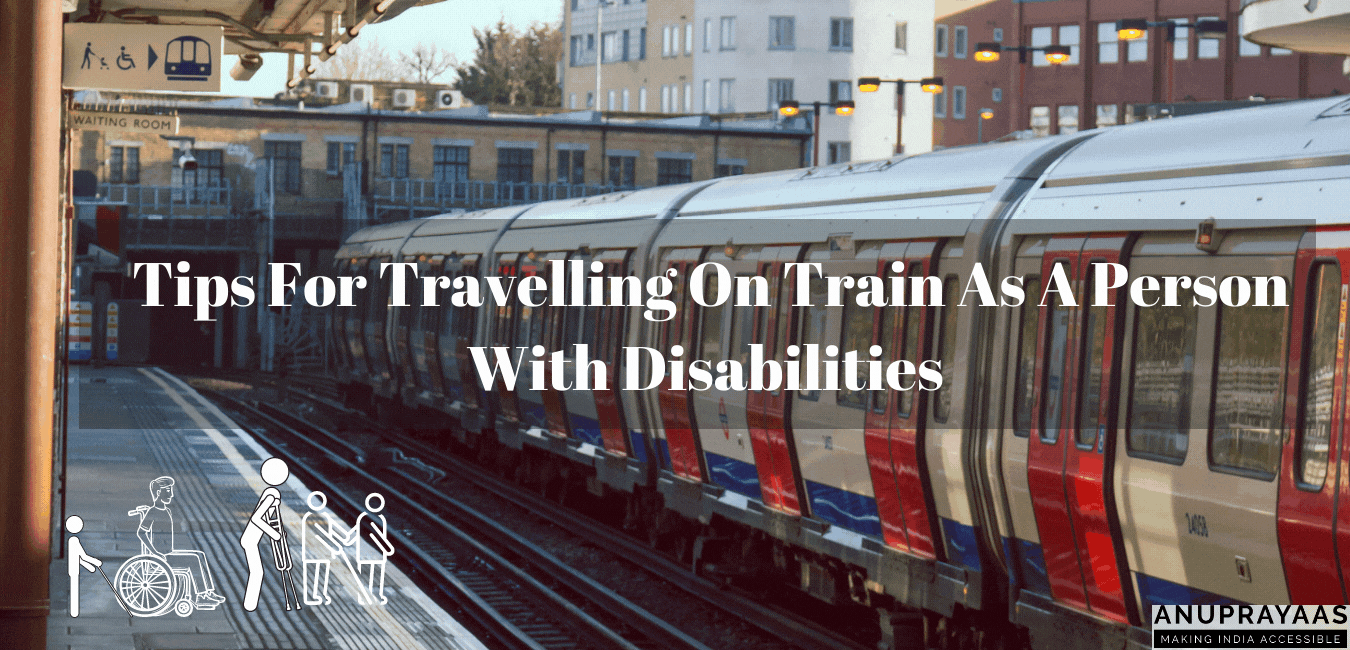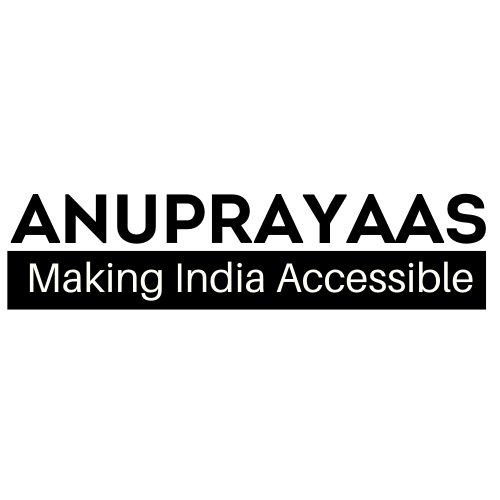“I am in a wheelchair. Can I travel by train?” A question in everyone’s mind with Orthopedically impaired or a person with disabilities. I would say this is the most accessible mode of transportation. Nowadays, many tour packages cater exclusively for people with disability, providing assistive transport and technologies with sightseeing options to help in mobility. Accessible transportation works the best for all tourists with an exciting vacation. When talking about accessibility-this includes making public places accessible, by providing traveller amenities such as;
- Wheelchair-friendly ramps
- Toilets
- Transport Options
- Buttons With Braille
- Trained Staff to assist people with disabilities, etc.
Today I am publishing a travel guide for persons with disabilities in India. I request all the readers to contribute more information so that this compilation of tips could benefit more and more people with disabilities.
Travel Guide For Persons With Disabilities
Meanwhile, sharing some tips which can be kept in mind to ensure smooth travel for a person with disability.
1. Know about the Accessible Facilities
Railway Stations are becoming access-friendly in India. You can look at the station map via google maps. You can get the basic idea about the entrance, number of foot over bridges, etc. Know about all the accessible facilities at the railway station such as Braille signage, Platform Indicators, Braille Maps, Wheelchairs, Portable ramps, etc. All these facilities are free of cost. Sign Language station descriptions are also available at some of the railway stations.
2. Know About Premier Trains
Premier trains such as Rajdhani Express and Shatabdi Express, are expensive but help in a smooth and comfortable journey. These trains mostly stop at platforms having a direct connection with exit. Indian Railway is working on making railway stations accessible by providing lifts, escalators, ramps to make the travel for people with disabilities hassle free.
3. Ask For Assistance From The Staff
Ask the staff for help when you are travelling alone and need any assistance. It will save your time and also make your travel experience smooth. This is the best way to reach your destination without asking other persons to help you board your train. The employee will also take care of your luggage. This service is generally free at the stations.
Moreover, we are also conducting Disability Awareness Program for the staff of railway to sensitise them and empower people with disabilities. Further, People on wheelchairs deboard the train after everyone else. This can be time-consuming, so make your plans according to that. There will be a designated employee after you to help you with your luggage and board the train.
4. Keep Medical Certificate With You
Keep a doctor’s note and medical certificate with you to avail assistance. This will help you breeze through security without much hassle. Reach the station before time to prepare for additional security screenings, and to find your way easily.
5. Transportation To And From The Railway Station

Taxis are the most comfortable commute to reach and leave the station, although they are quite expensive. If you are planning a budget friendly trip by boarding a bus or auto, make sure to leave much ahead of time. Wheelchairs are available at the station as well for older people and people with disabilities. If travelling with a lot of luggage, engage a porter to ease your experience.
6. Pick the Right Accommodation
You need to check some factors before booking your hotel. The checklist should include whether the hotel will provide a pick up and drop facility with an accessibility vehicle. You can check about the accessible facilities online or call the hotel before booking. Most of the hotels will be happy to provide you with all this information.
7. Choose the Right Guides

Choose a guide who has prior working experience in assisting a person with disabilities. These guides will have an idea about the places where you can easily go and the places you might have difficulty going to. For example If you have a hearing impairment, you should hire a guide who is well versed with sign language for hassle free communication. You can book a suitable guide via your travel agent, hotel, or look for them online.
8. Don’t Visit The Famous Attraction At The Peak Time
If you are going to visit the famous attraction of the city or station, choose to visit the attraction when there is a smaller crowd. Many attractions such as museums have special tours for the persons with disabilities. You can contact them for booking a slot while planning your trip. These tours are generally free of cost.
9. Carry the Essentials
Extra medicines, prescriptions, doctor’s emergency contact number, and other essential items should be with you at all times. Keep these items with you for your security.
10. Know Your Rights
Familiarise yourself with your rights as a person with disabilities. In general, the railway staff attendants cannot discriminate based on a disability. You can take up complete information from the enquiry counter, help desk in case of any difficulty.
11. Have A Backup Plan
After the hard times of COVID we should always try to keep a backup plan. Carry a full set of medication with you in case of any unpredictable delays. Speak to your doctor about medical eventualities. Carry first-aid equipment and extra clothes . Have a copy of your medical records on hand, and list your emergency contacts clearly.
12. Plan Your Route
Do your research for travel options and utility of public transportation. Read about the amenities present at the station and try to get a description about the station through online mode.
Best Accessible Travel Tours For People With Disabilities In India

- Golden Triangle Tour
- Kerala – The God’s Own CountryTour
- North India Nepal – Accessible Tour
- Royal Rajasthan Experience Tour
- Southern Splendour – TamilNadu & Kerala Tour
- The Southern Panorama Tour
- Wildlife Tour Of North India Tour
With a little more planning and effort, travelling with disabilities would become the same as travelling without any. I hope these tips turn out to be useful for you.
Accessible Travel
The travel industry is now well aware about the access needs of people with disabilities. Hence, provides special assistance and care to the travellers with disabilities. Accessibility is on the rise nowadays. Furthermore, the Government is taking an initiative for people with disabilities by looking into their access needs, including the older generation and people with disabilities.
In countries like India, commuting via various modes is not really a comfortable thing for everyone. In Urban areas, there is a lot of advancement with accessible infrastructures for the people with disabilities but in rural & remote areas, things are far away from being convenient. Even if there are any facilities available, people are often unaware of them.

We are working to make Railway Stations accessible for the persons with disabilities. By providing braille maps, braille signage, platform indicators, scannable QR Codes to know about the station, reflective strips, portable ramps, wheelchairs at the station. We also conduct Disability Awareness Programme to sensitise people about disability.
You can go through all our works and to reach us
for conducting a Disability Awareness Program for your School, Office or employees by clicking on the below link
https://anuprayaas.org/contact-us/
Anuprayaas conducts Disability Awareness Programs for Employees and have sensitized more than 8500 people through our programs.

